#memoradelia
Photo

Gerhard Richter - The Fischer Family Oil on Canvas
#oil painting#painting#art#fine art#classic art#favourite painters#Gerhard Richter#blurry#impressionism#impressionistic#Polaroid#blurry photographs#memoradelia#soft focus for full appeal#Sonic Youth#70s#Postmodern Impressionism#German Artists
17 notes
·
View notes
Text
RJL-H:
When did you first become aware of Derrida’s word/term and how did you come to reapply it to music?
Simon Reynolds:
Not sure when exactly I first became aware of it – one of those terms that was floating around in the intellectual ether – but I first got any kind of grip on what it signified when I read the essay collection Ghostly Demarcations: A Symposium on Jacques Derrida’s Specters of Marx.
That came out in the late 90s I believe (not 2008 as it says on the Verso website, they’re referring to a new edition of it with a different cover) and it’s a bunch of essays mostly taking issue with Derrida’s “rapprochement” with Marx and his contesting of the idea of “the end of history” – the victory of neoliberal capitalism. There’s a few sympathetic essays like Fredric Jameson’s, but mostly quite hostile, from Marxists like Terry Eagleton, basically saying “okay, where were you during the 1980s?”. Anyway, that sparked my interest in the term and lodged it more firmly in my head. I believe it’s from an actual symposium that took place in 1993. Derrida’s response to his critics – quite peevish and wounded! – is included in the book.
However the initial use of 'Hauntology' was not meant to indicate any real connection between Derrida’s ideas and these bands, it was a playful term meant to evoke this spooky music with its explicit references to ghosts and the more general vague sense of revenant memories emerging from the cultural unconscious of recent (specifically British) history.
There are certain parallels that can be drawn between Derrida’s ideas and some of the things going on in, what music critics/bloggers have taken to calling, Hauntology, but they are pretty loose.
Have you read Specters of Marx? When I finally got round to it, I was quite disappointed. Hardly any of it seemed to have any application to Hauntology-as-music-genre. And beyond even that, it’s just an odd book. Typical Derrida (in my limited experience anyway), insofar as very specific things are given this extremely close reading, with lots of verging on tortured word-play and etymological games. The first bit is all about Hamlet’s father ghost: pretty interesting but rather strained in terms of the significance ladled onto what is, at the end of the day, a scene in a play. Then in the middle there’s a pretty passionate, eloquent section about how despite Communism allegedly being dead, the conditions that caused the Marxist analysis to emerge (injustice, exploitation, inequality etc) are not only with us but arguably worse than ever, so the spectre of Communism is still stalking the global stage. Cool to read him speaking out so directly, but then again, it doesn’t get much beyond slightly windy generalities. There’s also a long section about Marx and his disagreements with a philosopher contemporary, Max Stirner, and Marx’s fear of ghosts. Bit abstruse and again, its wider applications seemed uncertain.
Basically, I found very little I could extract and apply to Moon Wiring Club and Mordant Music! Which is not the only reason I read theory books; to get ideas to redeploy. But having actually read Spectres of Marx I did kind of regret the fact that Hauntology ended up being the name. Memoradelia, as suggested by another writer, might have been better.
Another slim, dense book by Derrida – Archive Fever – is slightly more useful for Hauntology-as-music-genre. But even here there’s a very close reading of a Jewish religious writer’s book on Freud.
As I say, it was picked as a name almost whimsically really. The ‘ology fit because there was something quite sober and scientific about the Ghost Box vibe, the whole pedagogical aura, similar to the first series of Look Around You.
How it came to become the Name, is a little cloudy. Mark Fisher had used the word ‘Hauntological’ as an adjective but I actually blogged a sort of “okay, chaps, let’s go with this as the name, shall we?” post. Also I had done the first published piece (outside the blog world) on Ghost Box and my original title was “Hauntology”. But Frieze went with “Spirit of Preservation”. That was published in October 2005, but I’d have written that in August most likely.
It’s a difficult one, the genre naming issue. As a journalist I know from having been around the block a bunch of times, that in terms of getting coverage for artists, it’s immeasurably better if there’s some kind of genre or scene name. Usually it’s best if the putative scene comes up with one themselves, as happened with grime (eventually, they took forever to settle on a name). But discourse abhors a vacuum and the longer people shy away from the process of self-naming, the more likely a journalist will step into the breach. Of course artists reflexively resist being pigeonholed, which is understandable. And as soon as there’s an identified genre, you run the risk of codifying the style, you get second-wave imitators. It’s a trade-off but I think on balance – when you factor in everything from piquing the interest of editors, to arousing the curiosity of potential fans, to mundane but vital things like getting your own dedicated section in record stores – having a name is a really important step. It develops its own momentum – there’s artists in the genres who complain churlishly about the name, but who’ve benefited from e.g. Boomkat doing a Hauntology track compilation, or from an arts institution like the British Film Institute doing a Hauntology event.
Musicians, bless ‘em, always see what they do as a) completely individual and b) completely original. They don’t like to envisage themselves as products of discursive currents, zeitgeists, etc. But if there’s one thing that Derrida, Foucault et al got right, is that the episteme is what generates ideas, sensibilities, what seems relevant or sexy at particular times in terms of culture/art/etc. The fact that all these artists emerged simultaneously and, initially, seemingly unaware of each other, shows that there’s something going on that’s bigger than any one individual’s obsessions.
RJL-H:
Whilst we’re on the subject. Derrida was christened Jackie. Jackie Élie Derrida. Having become aware of this, now, when I think of Derrida, I think of another Jacques and the eponymous hero of Brel’s song Jacky (La chanson de Jacky). Though in truth, the version as retitled and reinterpreted by Scott Walker comes more readily to mind.
“If I could be for only an hour, if I could be for an hour every day, if I could be for just one little hour, cute in a stupid ass way”.
I sometimes think that Derrida may well have considered himself better suited to a life such as the one lived by the eponymous hero of Brel’s song.
At this stage, Hauntology is seen by some as a mix-n-match of unsettling children’s television, analog electronics, suburban witchcraft. So on and so forth. By others, as a kind of backward looking-forward thinking philosophy, or vice-versa.
I see Hauntology’s core interests as an interrelated framework of ideas, rooted in, and branching out from, a seemingly simple premise: The past and future, converging on the present.
To give Derrida his due, this concept of haunting, this ‘action of haunting’ is key to our understanding. So, to put it another way, the past and the future are haunting the present.
I would also say that I consider that something cannot be knowingly created Hauntological. A judgement can only be made in retrospect. As some people believe that objects do not exist until they are observed, I believe that something is rendered Hauntological by our considering it to be so. I think that things that are created to be knowingly Hauntological, more often than not, produce poor results.
Memoradelia is a good word/term. An American friend, who lives in Astoria, NY, says H, instead of Hauntology. People get fatigued. Hauntology sounds pompous and it doesn't spell check.
SR:
Nice to find my Derrida doubts confirmed and buttressed. In all honesty so much of it just seems like verbiage for its own sake. I know that to want to say to Jacques "for fucks sake man, can you not just come and say what you have to say in as direct and economical a fashion as possible", is to completely go against the spirit of Derrida, but that is what I unavoidably find myself feeling. The yield of actual ideas per kilo of verbiage is very low.
I actually have an almost diametric opposite feeling about Hauntology – I am much much more attached to the music than I am the word or even the concepts. It's really pretty much my favourite music of the last nine years, along with Ariel Pink and a few other things. What I listen to, inexhaustibly. If I'm being stern and quasi-objective, I would say that there's maybe half a dozen H artifacts that are essential, what every home should own. Slightly more if you include proto H things like Boards of Canada's Music Has the Right to Children or Position Normal's Stop Your Nonsense.
That core of the canon would be: The Focus Group's Hey Let Loose Your Love, Belbury Poly's The Willows, Mordant Music's Dead Air, The Advisory Circle & Other Channels/Mind How You Go, Moon Wiring Club's An Audience Of Art Deco Eyes & eMMplekz's IZOD Days, Everything else is nice but either supplementary or reiterative. Some of it is not very good at all.
The Caretaker, James Kirby has done good stuff, but oddly vitiated by excessive copiousness. The Transactional Dharma of Roj LP was good and Broadcast have their moments. Pye Audio, nice, but inessential. Demdike Stare, dreary unmemorable, crippled by good taste. And what dry tedious interviews they do.
I wish Moon Wiring Club had been on The Wire cover, his music is much better and more fun and also genuinely eerie at times. And he has much more interesting, charming stuff to say. I think that charm and humour is an overlooked aspect of this music. But that relates to the fact that although I said above that every home should own these records, I also realise that this stuff has very limited appeal, it really only resonates with UK raised people of a certain age. I'm always honestly amazed when a 20 something American tells me that they love Ghost Box. There is a hipster store, Mount Analogue, in Los Angeles that has a whole section for Hauntology, even the BFI DVDs. Huh?
Not sure I agree that you can't consciously make something Hauntological. Boards of Canada were clearly aiming for something uncanny with Music Has the Right to Children and they achieved it, that record was the primary, initiating experience of the H effect for me. That and Position Normal's Stop Your Nonsense.
I do however agree that at its most powerful, it comes at you unexpectedly, involuntarily from music or other pop cultural things that don't resemble H as now understood and codified. Or from your personal life.
RJL-H:
For me, I'm applying, repurposing, the word/term for something that already exists and that has existed, in all likelihood, for quite some time. In fact, I often come back to the word Otherness. I see that Alan Garner has, upon occasion, used Otherness to describe aspects of something that we'd now likely categorise as Hauntological.
You could of course argue, why join the party? Why not just stick with Otherness?
I've done a little work with Simon Costin's Museum of British Folklore and Simon once mentioned that Americans seem to be more interested in British Folklore than the British. This is understandable, I think, but I'm also seeing something similar happening with Hauntology.
SR:
I think every country or nationality, let's say, has its own Hauntology. Potentially anyway. This sort of cultural or para-cultural substrate of common experience that you don't really notice until it's gone.
Certainly the cluster of music that, for better or worse, I've come to call Hauntology, is very British, and also generational, it resonates for people who were children in the 1960s/70s and a little bit 80s. But non Brits do seem to pick up on aspects that do something for them, a non specific evocative-ness and out-of-timey effect.
Otherness is good although I would say that what further defines it as sensation is this odd alloy of intimacy and otherness... A part of yourself you'd lost or forgotten that's returned to yourself. A self othering. In that sense definite analogies with analysis in the Freudian sense. Which makes sense if one is talking about cultural unconscious, etc.
So it's not a totally othering, disorientating experience, as in mystical, paranormal, or hallucinatory, like drug experiences or going insane. It's gentler, a twisting, or tinting of the everyday. Rather than deranging, a sort of cosy mild unease or dissociative feeling. Reverie rather than Rapture, in the saint Theresa sense.
The one thing that came through more clearly when doing the chapter in Retromania, was the extent to which my idea of Hauntology-as-music-genre, and my affection for it, is based around nationality. And I make this opposition between nationality and nationalism. Nationalism is political and it’s an ideology of national greatness or exceptionality. Nationality is pre-political I think – it’s the things I share with all other Britons including so many I have nothing in common with politically or in terms of chosen allegiances (musical, artistic, etc). Nationality in that sense is the pre-chosen, the given rather than what you consciously seek out or align yourself with. There’s this term people use, I’m not sure of the provenance in terms of either who coined it or even what discipline it comes from (Sociology? Anthropology), but the term is “lifeworld” – and I guess it means the realm of customs, everyday life, accents, gestures, rituals, routines, habits, common sense, food etc. I suppose Antonio Gramsci would say this kind of stuff is actually ideological, it’s part of hegemony (Roland Barthes also analysed this kind of thing under Mythologies). But to me it’s more like the common inheritance of phrase and fable, idiom, and also, the arbitrary stylistic and design quirks of the typography used on everyday articles, the look of shops and public institutions, etc.
I was just in the UK last week and being an expatriate now I notice this stuff that I would not have noticed when I lived there and it was all I knew. Also I just learned to drive so I’m paying more attention, but you know, things like road signs – where my mum lives in west Hertfordshire, signs like “weak bridges” or “traffic calming area” (for a zone with bumps in the road to stop drivers going too fast and running over little kids, presumably!). It’s in that kind of thing that the soul of a nation resides. That’s where Hauntology does cross over into the realm of the hobbyist, which is frankly nostalgic and fetishistic of the bygone, musty, etcetera.
A lot of Hauntology taps into this kind of thing, and largely the elements of the nation-soul or lifeworld that are fading away. Although whenever I go to England I am quite amazed by how unchanged it is, indistinguishable, in large part, from the 1970s or 80s Britain, that I remember. Old people still look the same. The main differences between then and now seems to be mobile phones and coffee.
At one UK Hauntology event (the Wire salon, I think) that was made available on the web, I seem to recall someone in the audience complaining about Hauntology as this picture of a white Britain, before the impact of immigration and multiculturalism. Which seemed like typical academic intersectionalist point-scoring. But no one on the panel had a good answer to that line of attack, they were a bit blindsided and flummoxed! Certainly the voices used by Moon Wiring club, etc., are evocative of a certain era of television and the BBC and tend to be posh, thespian or white regional working class. But in the case for the defence, should be noted that Belbury Poly did a couple of reggae based tunes! Also a lot of this stuff becomes part of the culture of immigrants as they assimilate, especially those who were born here. The black British theorist Paul Gilroy wrote about his love of Englishness, hedgerows and cricket etc., in this book 'Postcolonial Melancholia'. About how he was as affected by growing up with all that surrounding him as anybody. He also wrote an essay called 'Analogues of Mourning, Mourning the Analog' that approached a kind of black-music Hauntology, based in his nostalgia for an era of transnational black music, vinyl statements from US soul and funk to Jamaican reggae, the 1970s, etc. His feelings that something had been lost with the transition to hip hop and video-based, digitally-produced black pop.
RJL-H:
That's an interesting question, is Hauntology racist? Like you say, every country or nationality has its own Hauntology. Potentially anyway. Right now, Hauntology might seem a little pale, but that could change.
As alluded to previously, I've no doubt that our emotional response to our environment alters our perception of it, but do town planners, and related, responsible for so much Hauntology or more specifically Psychogeography, consider such things, knowingly?
"In terms of plan forms for new villages he expressed a clear preference for the 'squared' type, with all its potential for diversity, such that 'in the future, as in the past, every village can be different from every other village, and that every village may be an individual place' (p.63). To this argument Sharp identified potential dangers: the danger of producing an overelaborate and over-sophisticated pattern, the danger of producing a completely rounded finite design, inhibiting organic change and the danger of designing overlarge public amenity spaces. Spaces, he argued, should be closed for climatic, pictorial and psychological reasons (as a contrast to open country views)" Town planner, turned college Professor, John Pendlebury, commenting on Thomas Sharp's 1946 book The Anatomy of the Village, in 2007.
SR:
I knew I’d spoken about this somewhere before, it was actually in an interview last year for someone’s blog, when I was asked if I missed London:
“I do miss London, and England, for loads of reasons, too many to list really. Beyond friends and family, just the fabric of daily life. The hedgerows and meadows and copses. The calm modulated tones of Radio Four. The weather – I actually miss things like rain, sudden showers, mist, fog, frost. There are about 20 different kinds of rain in the UK, whereas in LA, when it does rain – which is rarely – it’s more like an on/off switch, like a shower. London specifically, obviously I miss the parks – Brockwell Park and Hampstead Heath, above all. I think they have idyllic connotations partly because I was born in London and lived there until the age of 4, so a place like Brockwell Park on a really nice day has a kind of dream-like quality to me. Quite a lot of things that I miss about the UK are actually gone or are going (like record shops, the weekly music press, the BBC). So the homesickness is about a country that doesn’t even exist anymore. Yet conversely, whenever I go back, especially once I get outside London to places like the Tring/Berkhamstead area, where my parents live, or Durham and Swaledale in North Yorkshire, where my aunt and uncle live – I get a striking sense that the UK hasn’t actually changed that much since I was a boy. Old people look more or less the same, the landscape is more or less the same, except that haystacks now get covered in black bin-liners. There’s still allotments and canals, with brightly coloured barges and flooded fields beside them. Pubs and beer gardens. Village fetes, etc. Everyone has science fiction phones, people are dressing a bit sharper and flashier and punk rock is taught in middle school, as part of popular culture courses. But essentially, at heart, the country is the same. For better and worse”.
Re: the 'is Hauntology racist' question, I think it’s a non-issue really. Artists don’t practice affirmative action. Institutions and corporations do, or should. Artists are drawn to and inspired by what they’re drawn to and inspired by. To me it’s like saying to an angler, “by being interested only in catching fish you are being implicitly derogatory or exclusive towards hunting animals and birds”. Not in the least: it’s that something about the experience of sitting by a canal for hours and hours, often in vain, speaks to that person.
Anyway, the other thing about so much Hauntology-as-genre is its relationship to hip hop. Very much present in BoC and key in the genesis of Position Normal, and remains part of the make up of Moon Wiring Club, which is all about beats, loops, samples. Ghost Box is more rooted in psychedelia and radiophonics, but there’s a connection to 90s electronica, trip hop, big beat – people like Luke Vibert/Wagon Christ, who were exploring that intersection between breakbeats and library music back in the 1990s.
RJL-H:
Those first two Wagon Christ albums are really interesting. Phat Lab. Nightmare and Throbbing Pouch. I have a white-label of Phat Lab. somewhere. It was in with a bunch of promos I bought from John Stapleton. It was obviously surplus to requirements, for whatever reason.
RJL-H:
So, to close us out, all things in consideration, what's the future of the past?
SR:
Very healthy, in the sense that the past isn’t going away and there’s going to be even more of it about. More and more of it, all available at once, every era overlapping, and with micro-industries dedicated to excavating both new information about things we already know about, and things from that time that were virtually unknown or had slipped into obscurity. So the past will be super-abundant, but increasingly over-written and re-written. Its shape will keep changing. In the 80s, things like minimal synth and Italo-disco didn’t really exist, as concepts and areas of music that the majority of music fans knew about. Now they are actually entities on the historical landscape. This kind of adjustment of the canon has always happened. Figures that were central in their own era fade away, and others that were less prominent become in retrospect much more crucial than they appeared to people at the time. But it happened slowly, in a much organic way, and in a way that actually spoke of changes in the present: the past as a mirror to the present’s concerns and outlook. But now there are almost vested interests behind this kind of frantic rewriting and over-writing of history. There are little industries of reissuing, documentary-making, and so forth, on the look-out for stuff that’s been neglected.
The other thing about the popcult (and unpopcult) archaeological frenzy is that it has a tendency to saturate these works and artists from the past with information that is oddly constraining in terms of their ongoing cultural life. They become fixed.
For me as a historian, which is what I am now primarily, it’s important to try to recreate what people felt at the time and the limits of what they knew. Most people buying a Bowie album in his 70s prime, or Joy Division’s Closer when it came out, didn’t know all the personal biographical stuff informing it, or all the kind of esoteric allusions that limn a record like, say, Station to Station. They didn’t have any way of knowing these things then - like for instance, with Ian Curtis, we just didn’t know about his wife, his mistress, or even his epilepsy. That wasn’t the meaning of the music. The suicide came out of the blue and seemed to be a product of the intensity of the lyrics and the unforgiving, bleak worldview. Unfortunately because of his widow’s memoir, and the movie Control, all that personal stuff has now become the meaning, in a quite reductive way. What the historian or dedicated fan-blogger who does bring in all those references and biographical correlates into their analysis does, is actually a kind of anachronism or hindsight-wise distortion of how these records were received and what their significance was.
But equally, it’s a moot point whether we can ever truly know the past. We are always harnessing it for our current purposes, recruiting to a contemporary agenda. It is a mirror for our narcissism, our obsessions and anxieties.
0 notes
Photo
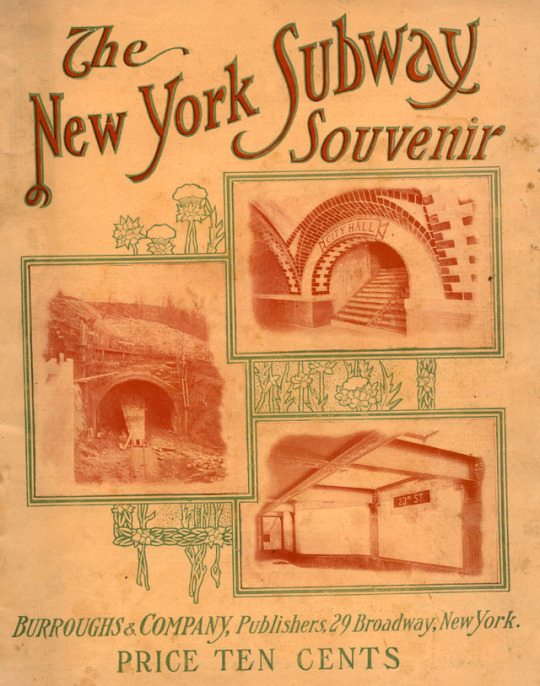

The New York Subway Souvenir (1904)
0 notes
Photo

#Louis-Rémy Robert#Romesnil#1850#photography#old photography#old photo#classic photography#Past Inside The Present#memoradelia#The Palace of Green Porcelain#Metropolitan Museum of Modern Art
4 notes
·
View notes
Photo

Christmas Eve, 1985 More Here
#'80s#80s#Christmas#Christmas Eve#Christmas Aesthetic#80s aesthetic#snapshot#vernacular photography#everyday people#everyday life#memoradelia#The Palace of Green Porcelain#The Invisible Museum#hauntology
6 notes
·
View notes
Photo
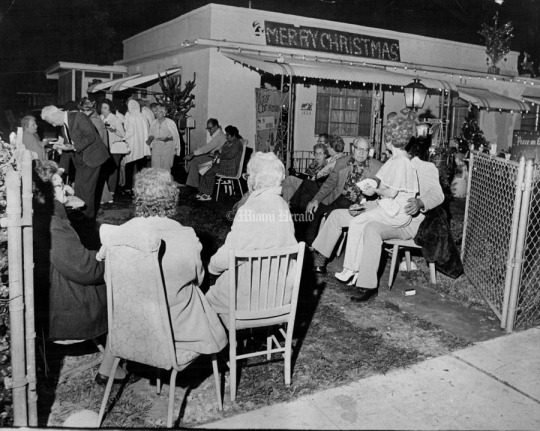
#Christmas#Christmas Aesthetic#Merry Christmas#retro#nostalgia#black and white#b&w#black and white photography#b&w photography#retrodelia#the past is another country#the past is an undiscovered country.#memoradelia#Miami#vintage Miami#vintage photography#The Palace of Green Porcelain
0 notes
Photo
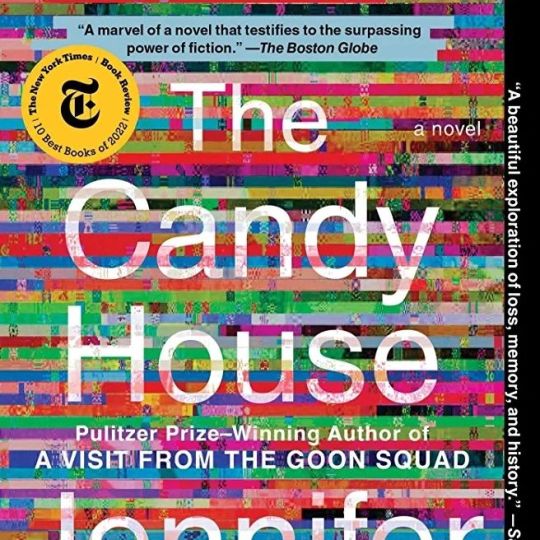
"The networked society, with its information overload and constant connectivity, is changing what it means to be human. The proliferation of cameras makes everything performative, putting us continually on display while making us cripplingly self-conscious. The constant curated drip-feed of our community’s highlight reel leaves us feeling inadequate and dissatisfied with the regular, humdrum details of our daily lives. Exposure to massive networks of near-strangers leaves us feeling insecure, unsteady, vaguely defensive and often outright aggressive. The Candy House, the spiritual successor and loose sequel to Jennifer Egan’s rock ‘n roll novel A Visit from the Goon Squad – winner of the Pulitzer Prize, the Los Angeles Times Book Prize and the National Book Critics Award – is a funhouse mirror distortion of our current world told from a vaguely dystopian near-future that is all too recognizable while still being entertainingly far-out and imaginative." Happy book release day to @jennifereganwriter, whose wonderful The Candy House (@scribnerbooks) came out today in paperback. Its one of my favourite books of the past few years. My review is up now on Spectrum Culture. Click the Link In Bio to read the full review! . . . . . #JenniferEgan #TheCandyHouse #books #bookstagram #bookreview #newbooks #releaseday #bookreleases #bookreleaseday #avisitfromthegoonsquad #literature #modernliterature #modernlit #pulitzerprize #nationalbookcriticsaward #2022books #bestof2022 #bestbooksof2022 #2022bestbooks #virtualreality #networksociety #networkedsociety #memories #nostalgia #authenticity #socialmedia #socialmedianovels #memoradelia #jsimpson #spectrumculture https://www.instagram.com/p/CpgtdNSOgMz/?igshid=NGJjMDIxMWI=
#jenniferegan#thecandyhouse#books#bookstagram#bookreview#newbooks#releaseday#bookreleases#bookreleaseday#avisitfromthegoonsquad#literature#modernliterature#modernlit#pulitzerprize#nationalbookcriticsaward#2022books#bestof2022#bestbooksof2022#2022bestbooks#virtualreality#networksociety#networkedsociety#memories#nostalgia#authenticity#socialmedia#socialmedianovels#memoradelia#jsimpson#spectrumculture
0 notes
Photo

#Christmas#memories#memoradelia#photography#photograph#old photograph#archives#archive theory#black and white#black and white photography#black and white photo#black and white photograph#christmas memories#shopping#consumerism#materialism
11 notes
·
View notes
Photo
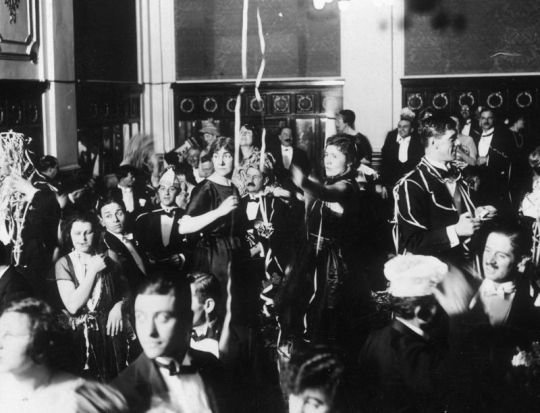
#new years#new years eve#1920s#20s#roaring 20s#old pictures#old photos#photo archive#archive theory#memoradelia#past inside the present#atemporality#visual archive#black and white photography#b&w photography#vintage photography#retro photography
10 notes
·
View notes
Photo

3 notes
·
View notes
Photo

#christmas#memories#memoradelia#christmas memories#photos#photo#old photos#photography#snapshot#vernacular photography#50s#1950s#americana#cowboys#archives#invisible archives#archive theory#old photography#vintage#retro#vintage photography#retro photography
4 notes
·
View notes
Text
Thursday the 3rd of July 2014 | The Alex Cafe Bar & Brasserie | 123 Undercliff Road West | Felixstowe IP11 2AF | Suffolk
RJLH:
How did you happen upon the word/term Hauntology?
MF:
I don’t know… I was aware of it, via theory, via Derrida, since the 90’s, as a term, it wasn’t something I’d really thought about until 2006 when this confluence of things occurred which later became, very quickly became labelled Hauntology. It was around then that I reached back for the term and started to see the connections, primarily in music, music was the potentiator rather than something which can contain the whole meaning, the scope of Hauntology. Around that time there was some discussion, on blogs, primarily I suppose, as to whether or not it was the right term to use. I felt it was ripe for repurposing.
RJLH:
In relation to music, specifically, Simon Reynolds, who alighted on the word/term around the same time, say’s he has come to prefer Memoradelia, as proposed by Patrick McNally.
MF:
I think Memoradelia only captures part of it. The spectral dimension is a very important part of Hauntology. This idea of lost futures isn’t about memory, not straightforwardly anyway, it’s about anticipation, it’s about… For me a key aspect of Hauntology is the age of the virtual, as I call it. The capacity of the virtual to effect things. A lot of what we call spectral, ghostly, can be classified under that term. The reason why the concept of haunting seems so apposite in the 21st century, was the sense of we live in the ruins of lost futures, really, the future failed to arrive, in the 21st century. Not a specific detrimental future with had in mind failed to arrive, but the sense of futurity had disappeared from 21st century life. It’s that pang, that longing, for a future that failed to arrive, seems to me one of the curial dimensions.
RJLH:
A sense of having lost-out, a sense of loss.
MF:
Yes, a paradoxical loss, the loss of something that never was, that you never had.
RJLH:
As I’m sure you’re aware, the word/term Hauntology finds its origins in (Jacques) Derrida’s 1993 document Spectres de Marx: l'état de la dette, le travail du deuil et la nouvelle Internationale (Éditions Galilée). Published in English the following year as Specters of Marx: The State of the Debt, the Work of Mourning & the New International (Routledge).
”To haunt does not mean to be present, and it is necessary to introduce haunting into the very construction of a concept. Of every concept, beginning with the concepts of being and time. That is what we would be calling here a Hauntology. Ontology opposes it only in a movement of exorcism. Ontology is a conjuration”
In Spectres of Marx, the word/term Hauntology is just kind of thrown up, but I wonder if you’ve ever seen Ken McMullen’s 1983 film Ghost Dance?
MF:
I have the DVD you know.
RJLH:
Derrida appears as himself in the film and expands a little on his thinking regarding haunting, mourning, etc. I feel I must make it clear at this point, that, despite the fact that Jacques’ is responsible for coming up with the word/term Hauntology, I am not a great fan of him or his work. Nonetheless, he’s someone who throws up ideas and ideas are always good.
“…instead of diminishing the realm of ghosts, as does any scientific or technical thought, is leaving behind the age of ghosts as part of the feudal age, which is somewhat primitive technology, as a certain perinatal age. Whereas I believe that ghosts are part of the future and that the modern technology … like cinematography and telecommunications enhances the power of ghosts and their ability to haunt us…”
“You know, ghosts don’t just appear… they come back. In french we talk about them “returning”. Now that presupposes a memory of the past that has never taken the form of the present…“
MF:
The opacity, the intentional opacity, ‘nothing is what it’s supposed to be’, etc. The whole underlying sentiment of pious indeterminacy, as I’ve described it before, that kind of priestly dimension to it, which I also don’t find too appealing.
It’s also interesting for me where the encounter with Derrida came from, which for me was not initially through philosophy, but through music journalism anyway. It was via people like Ian Penman, Mark Sinker, who would frequently evoked Derrida’s concepts in the pages of the New Musical Express, in the 80s. Which now seems slightly crazy that that could ever have been the case.
RJLH:
As a young man buying Sounds every week, one thing leads to another. You take an interest in a band, a musician, maybe musician isn’t quite the right word. Take Throbbing Gristle for example. You get into Throbbing Gristle, you read an article, or an interview and before you know it you’re taking an interest in William S. Burroughs or Aleister Crowley. Do you think this process is still going on today?
MF:
I don’t think so. What I would call popular modernism, from the late 50s through to the end of the 90s, it was a particular kind of hub, perhaps a threshold which linked, opened up lots of other spaces. So yes, you would find out about literature, theory, philosophy, through music. Music wasn’t just music. For that period anyway, there was a music culture, rather than music as such, that could operate that way, I’m not sure it does in quite the same way now.
RJLH:
All is not lost though. Your interview with Burial comes to mind, where he mentions M.R. James.
MF:
It was pure luck that Burial mentioned that, right at the end of the interview. I was just about to wrap it up and he started talking about M.R. James, which was really interesting, yeah.
MF:
I should send you my piece on Alan Garner.
RJLH:
Some of Alan’s work, The Owl Service in particular, ticks a lots of boxes for me. If one sees any of this as a box ticking exercise. Pre-Hauntology, the way I saw the world, with its interconnections, as I still see it now, I would try to explain this phenomenon, this phenomenology, as a kind of Otherness.
Back in 2011, as part of its Literary Walks specials, the long running BBC Radio 4 program Ramblings went on a walk with Alan around his beloved Alderley Edge. And as he walked, in conversation with the shows host Claire Balding, Alan made numerous references to this Otherness.
MF:
Yeah, I think that one of the 21st century pangs, longing, is that comparative lack of otherness I think. That nostalgic dimension of hauntological culture, is a lot to do with a moment when otherness was much more integrated into the popular culture. And the popular culture was a feeling of connecting doors to otherness in a way, I think it’s almost entirely extirpated now. Full of references of para psychology and the like, these would be part of the substance of mass culture in many ways… de-stranging is my term, I think. What’s happened in the 21st century, in other ways, is the collapse of the sense of otherness.
Note. Recorded on a first-generation Apple iPad, it had always been my intention to transcribe the conversation in its entirety, however. The audio is poor. The Alex proved to be a relatively unsuitable venue for an interview, due to, not necessarily loud but, intrusive music. The iPad's built-in microphone tends to favour particular frequencies and as a consequence, at times, it is difficult to make-out what is being said. I may well never transcribe the conversation, in its entirety and even this short extract was finalised using notes made, before, during and after.
#Mark Fisher#Hauntology#Felixstowe#Suffolk#The Alex Cafe Bar & Brasserie#Undercliff Road West#Memoradelia#Patrick McNally#21st century#Ontology#Jacques Derrida#Specters of Marx#Jackie Élie Derrida#Ken McMullen#La chanson de Jacky#Éditions Galilée#Routledge#Ian Penman#Mark Sinker#Throbbing Gristle#William S. Burroughs#Aleister Crowley#Burial#M.R. James#Alan Garner#The Owl Service#phenomenology#otherness#Literary Walks#Ramblings
3 notes
·
View notes
Photo

Ed Ruscha - Gas Station
#art#photography#ed ruscha#la art#la artist#SoCal#Los Angeles Psychogeography#memoradelia#LA Psychogeography#psychogeography#southern california#los angeles art
2 notes
·
View notes
Text
To Beautiful To Be Believed: Ian William Craig - Thresholder album review
To Beautiful To Be Believed: Ian William Craig – Thresholder album review
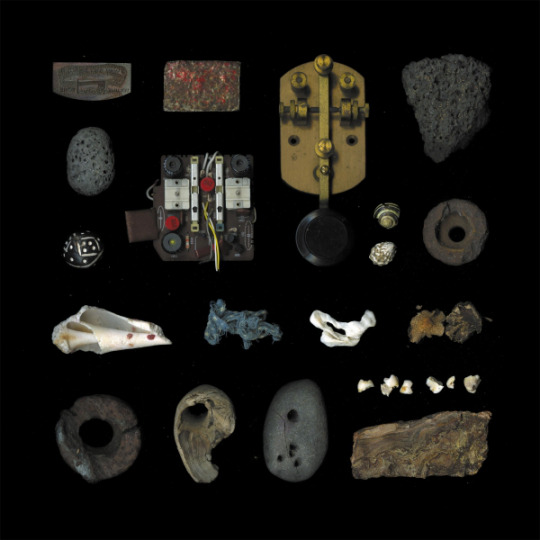
Vancouver Ambient composer Ian William Craig returns with an album of disembodied sacred choral music exploring the micro-mysteries and boundless space of the Universe.
What is mystery, in a world where everything is known? What place do shadows play when we obsess over casting every inch of the world in harsh, unflinching light?
In his influential poem “somewhere i have never travelled,gladly…
View On WordPress
#2018 music#album review#Ambient#choral#ee cummings#electroacoustic#Ian William Craig#Memoradelia#Memories#Mystery#Neoclassical#November#November 2#November 2018#Otomo Katsuhiro#Philip Jeck#soundtracks for anime#soundtracks for poems#The Caretaker#The Real#Thresholder#Tim Hecker#Vancouver#William Basinski
3 notes
·
View notes
Photo

Hang The Old Year Time isn't holding us Time isn't after us Turn and face the strange We have always lived in the castle. Here's to the death of the old year The summoning of what's to come. Happy New Years, y'all. photo remix by yrs truly. . #NewYear #NewYearsEve #NewYearsDay #HangTheOldYear #chchchchanges #TheNewYear #photo #photogram #photoedit #photoremix #atemporality #timeisntholdingus #hauntology #pastinsidethepresent #haunting #memoradelia #archive #archivetheory #godtimeandcausality #messianictime #poetry #poem #poemoftheday #visualpoetry #photoeditor #archivaltheory #angelusnovus #walterbenjamin #angelofhistory #jsimpson https://www.instagram.com/p/CJfcS2CLII1/?igshid=ool6e1uj3yp5
#newyear#newyearseve#newyearsday#hangtheoldyear#chchchchanges#thenewyear#photo#photogram#photoedit#photoremix#atemporality#timeisntholdingus#hauntology#pastinsidethepresent#haunting#memoradelia#archive#archivetheory#godtimeandcausality#messianictime#poetry#poem#poemoftheday#visualpoetry#photoeditor#archivaltheory#angelusnovus#walterbenjamin#angelofhistory#jsimpson
0 notes
Photo

Nearing completion of a remake of Aphex Twin's Merry Maidens, a lost track from 1995's #ICareBecauseYouDo EP. Coming soon on an upcoming Aphex Twin tribute thingee. Photo from #JulianCope's #TheModernAntiquarian #AphexTwin #RichardDJames #ICBYD #IDM #remix #remake #liveremix #ambientremix #choppedandscrewed #dessicant #stonecircle #MerryMaidens #DawnsMen #megalith #modernantiquarian #megalithic #Cornwall #StBuryan #psychogeography #landscape #photosofbritian #greatbritain #icu_britain #techno #breakbeat #memoradelia #hauntology
#icarebecauseyoudo#hauntology#megalithic#modernantiquarian#juliancope#megalith#icbyd#choppedandscrewed#landscape#stonecircle#liveremix#cornwall#stburyan#icu_britain#richarddjames#memoradelia#merrymaidens#themodernantiquarian#dawnsmen#psychogeography#techno#breakbeat#ambientremix#aphextwin#remix#dessicant#greatbritain#photosofbritian#idm#remake
4 notes
·
View notes